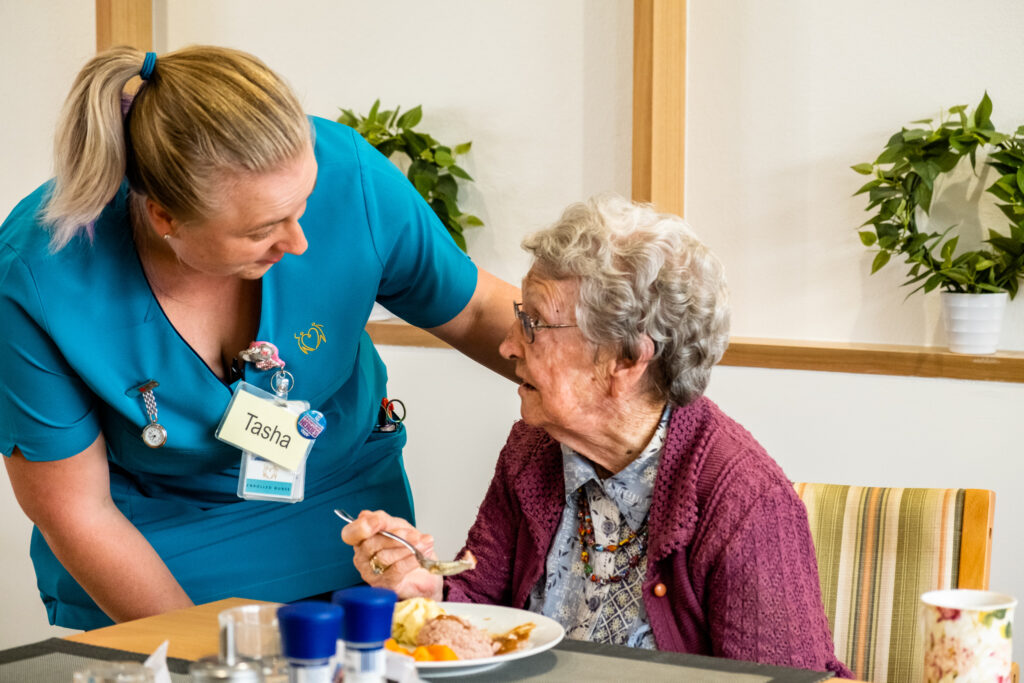Whether you realise it or not, swallowing is an essential part of your day-to-day life. Depending on a wide range of lifestyle factors, you’ll likely swallow somewhere between 500 to 700 times a day; three times an hour when you’re sleeping, roughly once a minute while you’re awake, and far, far more often than that when you’re eating. It’s such an automatic reflex that we don’t think about; but have you thought about how difficult things would get if you couldn’t swallow?
One of the most commonly developed age-related health conditions is dysphagia; a condition defined by difficulty swallowing and eating. Dysphagia is estimated to impact 30-50% of Australian aged care residents (approximately 90,375 people) (Health Direct, 2022), ranging from minor muscle degradation that causes difficulty consuming tougher foods to extremely debilitating symptoms requiring total liquidation of their food intake. This Swallowing Awareness Day, we’ll be taking a look at some of the facts behind dysphagia, as well as some steps we can take to improve the quality of life of dysphagia sufferers.
What is Dysphagia?
Dysphagia is a term that describes difficulty in swallowing and processing food from the mouth to the stomach. There are a wide range of factors that cause this, but the most common is the gradual neurological and musculoskeletal degradation that sets in with age (Ishak, et al, 2021). There isn’t one standard for dysphagia – sufferers could experience their symptoms at different levels of severity, ranging from mild discomfort with tough foods to severe difficulty simply drinking water.
Tackling Dysphagia in Residential Aged Care
Several approaches can be taken to ease the discomfort caused by dysphagia. While there is no known cure, symptoms can be alleviated through techniques including developing new swallowing methods through physiotherapy, speech therapy, and alcohol and nicotine abstinence (Krekeler et al, 2021). The most common method – and our area of expertise – is the usage of texture-modified foods to ensure residents can enjoy their favourite meals in a form that remains enjoyable regardless of their health.
The Future of Accessible Food
Since its introduction as an Australian standard in May of 2019, the International Dysphagia Diet Standardisation Initiative (IDDSI) immediately changed the aged care catering landscape. The IDDSI system is a scale of food texture and consistency, ranging from zero (the consistency of water) to seven (the consistency of normal foods). The scales overlap at texture levels three and four for both food and drink, where everything consumed is the texture of a thick puree. The implementation of IDDSI is important as it gives aged care providers a single set of standards to refer to when determining a resident’s level of capability, and gives chefs the same set of standards to work with when preparing meals for different levels of dysphagia sufferers (IDDSI, 2019).

Setting the Standard for Texture-modified Foods
As an industry leading catering provider, Cater Care strives to deliver the foremost dining experience in the texture modified food space. We were quick to pick up on the implementation of the IDDSI standard when it began rolling out to Australian care facilities, and our menus are designed by expert dietitians with nutrition and accessibility in mind. In addition, all of our team members in aged care facilities have completed a comprehensive IDDSI training program covering implementation, signage, labelling, and monitoring.
In light of this, we decided to take steps to expand our texture-modified offerings to everyone in the market. To this end, Cater Care recently acquired a majority stake in Care Food Co, a high-quality texture modified food producer and retailer with a long record of providing quality nutritional support for anyone in need of IDDSI-compliant food. Care Food Co stands alone in the industry thanks to their unique preparation and pasteurisation method, which ensures that their food remains delicious, visually appealing, with an extensive shelf life, all while making use of 100% natural ingredients. If you or your loved one needs high-quality texture modified foods delivered directly to your doorstep, Care Food Co is the best way to get Cater Care quality, wherever you are.
If you have a loved one in residential aged care, use this Swallowing Awareness Day to check in, make sure they’re feeling okay, and ensure that they’re receiving the quality care that they deserve.

References